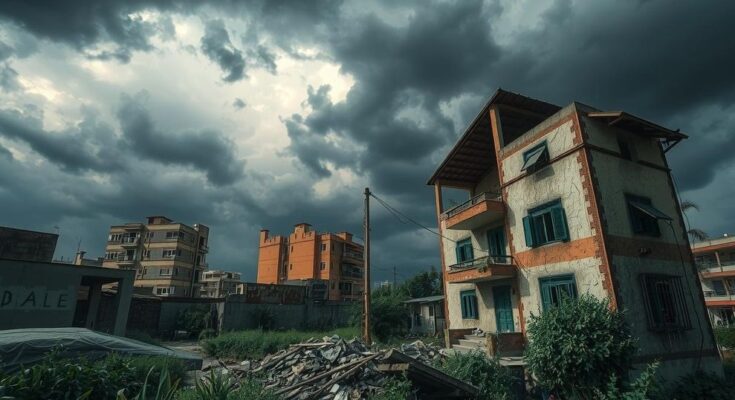Human Rights Watch has warned about the dangers facing civilians in Goma, DRC, after M23 rebels seized control. The conflict has displaced 400,000 this year, exacerbating civilian risk. Local sentiment towards M23 is complex, while the international community, including the UN, is urging an end to hostilities and protection of civilians.
Human Rights Watch has raised alarms regarding the safety of civilians in Goma, Democratic Republic of the Congo, following the city’s seizure by M23 rebels. The ongoing conflict has led to the dislocation of 400,000 individuals this year alone, as reported by the United Nations. The risk to civilian lives increases significantly with the M23’s capture of Goma, potentially leading to further displacement as unrest continues.
Videos from Goma depict M23 rebels patrolling the city, with some residents expressing apparent support. Blaise Karege, a political and security researcher, noted that local sentiment towards the rebels might stem from both fear and a shift in the nature of the conflict, which now has strong tribal overtones, diverging from its earlier political motivations.
The M23 rebel group began its offensive several weeks ago, gaining control over areas near the Rwandan border, amid allegations of Rwandan support—a claim denied by Kigali. Reports indicate that the Congolese army and allied militias, Wazalendo, have retreated from Goma, surrendering their weapons.
Human Rights Watch has emphasized its concerns for Goma’s residents, many of whom have sought refuge from various armed groups in the region, including the M23. Senior researcher Clementine de Montjoye highlighted extensive documented abuses, including executions, sexual violence, arbitrary detentions, and extortion, occurring since M23’s resurgence.
M23 asserts its goal is to safeguard local communities against abuses perpetrated by the Congolese military and militia groups. The United Nations Secretary-General, Antonio Guterres, has urged M23 to cease hostilities and withdraw from occupied areas.
According to Karege, the M23 will likely remain entrenched in Goma, claiming to protect their communities. He indicated that their presence might also provide leverage for negotiations with the Kinshasa government, demonstrating that withdrawal is improbable in the near future.
The M23 previously captured Goma in 2012 but left after a peace accord. After resuming operations in 2021, they accused the Congolese government of violating the terms of the earlier agreement, whereas the government maintains that disarmament must precede any discussions.
The ongoing conflict in eastern Democratic Republic of the Congo, particularly in Goma, has led to significant displacement and human rights violations. The M23 rebel group has a contentious history, capturing Goma multiple times since its formation. The precarious situation has drawn international concern, especially regarding civilian safety and rights, as various armed factions vie for control over the region.
In summary, the capture of Goma by M23 rebels has raised serious human rights concerns for civilians, many of whom sought refuge within the city. The dynamics of support and fear among residents paint a complex picture of the ongoing conflict, with clear implications for both regional stability and humanitarian conditions. Continued calls for peace and accountability remain crucial, yet the path to resolution appears fraught with challenges.
Original Source: www.voanews.com




